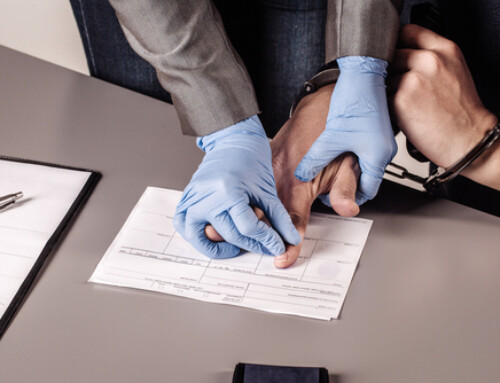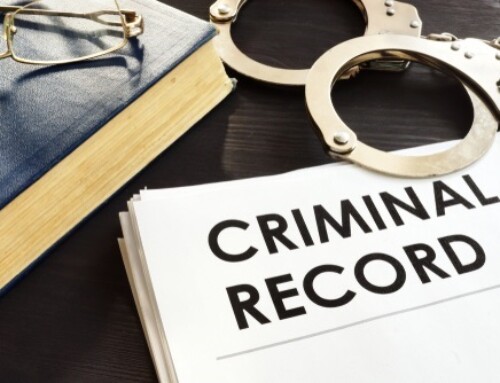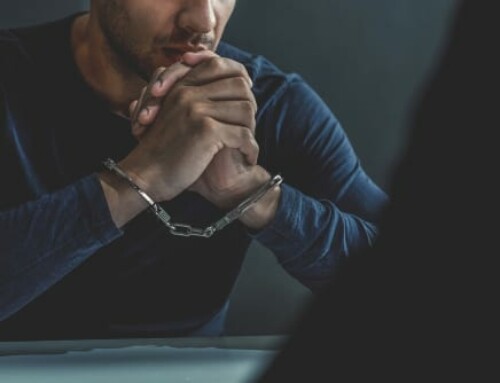If you are like most people, you have your cell phone with you at all times. In fact, you may feel uncomfortable if you leave home without your phone, and your phone probably contains more information about you than any other single item that you possess. But, while cell phones are convenient, the amount of data they contain also makes them prime sources of evidence in law enforcement investigations. From your text messages to your phone’s geographic tracking data (referred to as cell-site location information (CSLI)), if you get arrested, virtually every piece of information on your phone has the potential to be used against you in court.
Limits on Police Access to Cell Phone Data in South Carolina
Fortunately, there are legal limits on how and when the police can access your cell phone data in South Carolina. If you get stopped or arrested, knowing these limits can protect you against unnecessarily giving potentially-incriminating evidence to the prosecution.
When Can the Police Seize Your Cell Phone?
As a result of the U.S. Supreme Court’s decision in the 2014 case of Riley v. California, the general rule is that the police cannot seize your cell phone without a warrant. Additionally, even if the police seize your phone without a warrant incident to an arrest (as permitted in some circumstances by a specific exception to the Fourth Amendment’s protections against unwarranted searches and seizures), a warrant is still required for law enforcement to access the contents of your phone.
The one major exception to all of this is consent: If you consent to give the police your cell phone or to let the police search your phone’s contents, then a warrant is not required. In this scenario, any evidence obtained from your phone will generally be admissible in your criminal trial. However, suspects are not required to consent to give the police their phones; and, if you get stopped or arrested, you should not voluntarily hand over your phone under any circumstances unless advised otherwise by your criminal attorney.
When Can the Police Force You to Unlock Your Cell Phone?
But, let’s say the police have your cell phone, and they obtained it through legal means. If your phone is locked, can the police force you to unlock it?
The law in this area is still developing. Currently, the law draws a distinction between unlocking a phone via biometric access (fingerprint or facial recognition) and unlocking a phone via passcode or pattern lock.
1. Biometric Cell Phone Access Restrictions (Fingerprint and Facial Recognition)
Under current U.S. Supreme Court precedent, the police cannot force a suspect or arrestee to unlock a phone using a fingerprint or facial recognition voluntarily. However, if the police obtain a warrant specifically authorizing compelled use of fingerprint or facial recognition access, then the police can require you to grant access to your phone.
2. Passcodes and Pattern Locks
In contrast, the police cannot force a suspect or arrestee to provide a passcode or pattern lock access to his or her cell phone – even if a court has issued a warrant granting access to the phone. This means that individuals who protect their phones with biometric data can have their phones searched by the police, while those who only have a passcode or pattern lock are protected.
While this may seem like an arbitrary distinction, the reason for the distinction between biometric access and passcode or pattern lock access lies in the nature of the information required to unlock your phone. The Supreme Court has ruled that fingerprints and facial recognition data are more akin to DNA evidence (which the police can also obtain with a warrant), while requiring a person to provide a passcode or pattern lock equates to forcing the person to provide self-incriminating testimony in violation of his or her Fifth Amendment rights.
When Can the Police Access Cell-Site Location Information (CSLI)?
A separate but closely-related issue involves law enforcement gaining access to a person’s geographic tracking data, or cell-site location information (CSLI). Although court decisions have permitted the police to gain access to suspects’ cell phone tracking data without a warrant in the past, a 2018 decision from the U.S. Supreme Court now requires the police to obtain a warrant in most cases.
Regardless of the privacy settings you have on your cell phone, your phone is constantly gathering data about your location. This is how your phone “knows” which cell towers are closest, and it is how your phone constantly maintains the strongest signal available. While this is useful, it also means that your phone essentially acts as a tracking device, recording your location constantly and providing this data to your cell service provider.
In Carpenter v. United States, the Supreme Court ruled that gaining access to a person’s CSLI without a warrant constitutes a violation of his or her Fourth Amendment rights. This is true even if law enforcement obtain a court order to access a suspect’s CSLI under the Stored Communications Act (CSA). As noted by the court, the standard for obtaining a court order under the CSA (“reasonable grounds”) is much lower than the standard for obtaining a search warrant (“probable cause”), and the police cannot circumvent the Constitution’s probable cause requirement by relying on statutory authority.
What Does All of This Mean for You?
So, if you get stopped by law enforcement in South Carolina or arrested for an alleged crime, what does all of this mean for you? Most importantly, it means that you should not voluntarily hand over your cell phone or provide access with your fingerprint, facial recognition data, passcode, or pattern lock. You are not required to consent to a search of your phone; and, if you do, the information on your phone will only be used against you. If the police have seized your phone or sought to compel you to unlock your phone by any means, you should discuss your situation promptly with an experienced criminal defense attorney.
Request a Free Initial Consultation
Do you need to speak with a criminal defense lawyer in North Charleston? If so, we encourage you to contact us promptly for a free initial consultation. To discuss your case with attorney Rad Deaton, please call 843-225-5723 or request an appointment online today.






